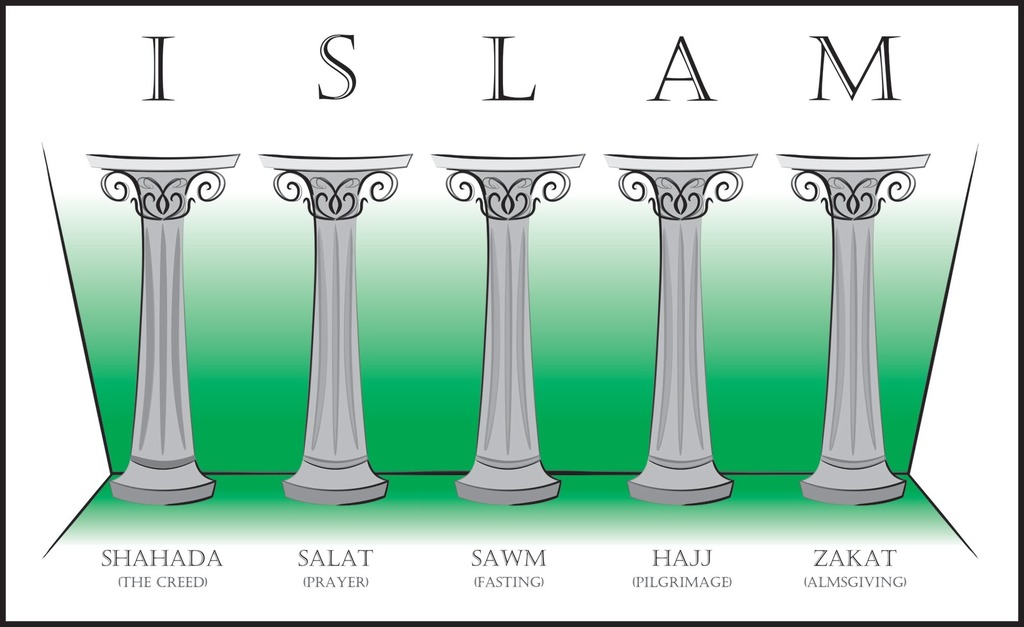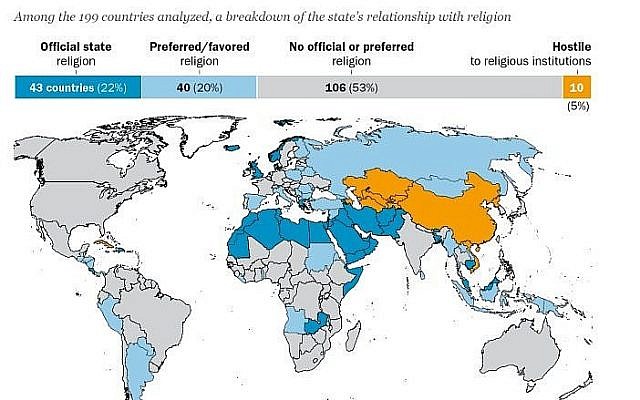7 Intriguing Facts About the World's Fastest-Growing Religion "Islam"
Islam, with its rich history, diverse cultures, and profound spiritual traditions, stands as one of the world's major religions, impacting the lives of billions of people worldwide. From its origins in the Arabian Peninsula to its global spread and influence, Islam holds a unique place in human civilization. In this blog article, we'll explore seven fascinating facts about Islam that shed light on its beliefs, practices, and contributions to the world.
1) Origins of Islam:
Islam traces its origins to the revelations received by the Prophet Muhammad in the early 7th century CE in the city of Mecca, located in present-day Saudi Arabia. Muslims believe that Muhammad is the last and final prophet sent by God (Allah) to guide humanity, and the Quran, Islam's holy book, contains the divine revelations received by him.
A 16th-century Siyer-i Nebi image of angel Gabriel visiting Muhammad
2) Five Pillars of Islam:
Central to the practice of Islam is the Five Pillars, which serve as the foundation of the Muslim faith and practice. These pillars include:
Shahada: Declaration of faith in the oneness of God and the prophethood of Muhammad.
Salat: Ritual prayers are performed five times a day facing the Kaaba in Mecca.
Zakat: Obligatory charity is given to support the needy and the less fortunate.
Sawm: Fasting during the month of Ramadan, abstaining from food, drink, and other physical needs from dawn until sunset.
Hajj: Pilgrimage to the holy city of Mecca, performed at least once in a lifetime by Muslims who can do so.
3) Diversity Within Islam:
Islam is not a monolithic faith but rather a diverse and multifaceted religious tradition with various sects, schools of thought, and cultural expressions. The two main branches of Islam are Sunni and Shia, with each branch further subdivided into numerous sects and subgroups. This diversity reflects the rich tapestry of Islamic history and the dynamic nature of Muslim societies worldwide.
4) Contributions to Civilization:
Islam has made significant contributions to human civilization in fields such as science, mathematics, philosophy, literature, and architecture. During the Islamic Golden Age, which spanned from the 8th to the 14th centuries, Muslim scholars made groundbreaking advancements in areas such as astronomy, medicine, and algebra, laying the foundation for modern science and intellectual inquiry.
5) Concept of Jihad:
The term "jihad" is often misunderstood and misrepresented in popular discourse. In Islam, jihad refers to the spiritual struggle to live according to the teachings of Islam and uphold moral virtues. While jihad may also refer to armed struggle in defense of Islam or against oppression, it is subject to strict ethical principles and conditions outlined in Islamic jurisprudence.
6) Respect for Prophets:
Islam recognizes and respects the prophets and messengers of God from various religious traditions, including Adam, Noah, Abraham, Moses, and Jesus, among others. Muslims believe that Muhammad is the final prophet and the seal of prophethood, but they hold reverence for all the prophets as exemplary figures of piety, righteousness, and guidance.
7) Global Presence:
Islam is the world's second-largest religion, with over 1.8 billion followers, representing approximately 24% of the global population. Muslims are found in virtually every country and continent, making Islam a truly global faith with a rich tapestry of cultures, languages, and traditions.
Islam's profound spiritual teachings, rich cultural heritage, and global presence make it a vibrant and dynamic force in the modern world. As Muslims continue to navigate the complexities of the contemporary era, they draw inspiration from the timeless values and principles of their faith, seeking to uphold justice, compassion, and the pursuit of knowledge in their individual and collective endeavors.


/difference-between-shia-and-sunni-muslims-2003755-v3-HL-0705e1a1776440348861183d19a2f5bd.png)

Comments
Post a Comment